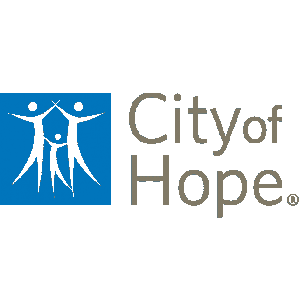Join the transformative team at City of Hope, where we're changing lives and making a real difference in the fight against cancer, diabetes, and other life-threatening illnesses. City of Hope’s growing national system includes its Los Angeles campus, a network of clinical care locations across Southern California, a new cancer center in Orange County, California, and treatment facilities in Atlanta, Chicago and Phoenix. Our dedicated and compassionate employees are driven by a common mission: To deliver the cures of tomorrow to the people who need them today.
Position Summary
City of Hope has one of the largest and most successful transplantation programs in the country, with more than 18,000 bone marrow transplant procedures performed to date through our cancer centers in Duarte, Phoenix, Chicago and Atlanta.
The Bone Marrow Transplant (BMT) unit provides comprehensive care to patients undergoing bone marrow transplantation. BMT is a complex procedure often used to treat various hematologic malignancies, genetic disorders, and certain autoimmune diseases. In addition to providing standard chemotherapy/immunotherapy treatments for hematological malignancies, this unit also provides CAR T therapy for a variety of diseases. There is a wide variety of clinical trial patients and collaboration with the clinical research nurses to infuse study drugs. The unit is designed to provide a supportive environment for patients undergoing transplantation, from pre-transplant evaluation to post-transplant recovery and long-term follow-up. This opportunity is for 12-hour shifts (3 shifts per week) and designated for the day shift, with a 7:00am start time. In addition to base pay, this position is also eligible for a weekend differential up to $15.60/hr (for applicable shifts).
Up to $20,000 Sign-on Bonus Available!
As a successful candidate, you will:
- Patient Assessment and Monitoring: Nurses in the BMT unit are responsible for conducting thorough assessments of patients before, during, and after transplantation. This includes monitoring vital signs, assessing for signs of complications, and managing symptoms related to the transplant process.
- Care Coordination: Nurses collaborate with a multidisciplinary team, including physicians, transplant coordinators, social workers, and pharmacists, to develop and implement individualized care plans for patients undergoing transplantation. They coordinate the various aspects of care, including scheduling procedures, administering medications, and facilitating consultations with specialists.
- Patient Education: Nurses play a crucial role in educating patients and their families about the transplantation process, including potential risks and benefits, pre-transplant preparations, and post-transplant care. They provide instructions on managing side effects, recognizing signs of complications, and adhering to medication regimens.
- Symptom Management: Nurses assess and manage symptoms such as pain, nausea, fatigue, and mucositis that may occur as a result of the transplant procedure or associated treatments. They administer medications, provide comfort measures, and offer emotional support to help patients cope with the challenges of transplantation.
- Infection Control: Given the increased risk of infection associated with bone marrow transplantation, nurses in the BMT unit adhere to strict infection control protocols to prevent the spread of pathogens. They educate patients and visitors on proper hand hygiene, isolation precautions, and other preventive measures.
- Documentation and Reporting: Nurses maintain accurate and up-to-date documentation of patient assessments, interventions, and outcomes in the electronic medical record. They communicate effectively with other members of the healthcare team, providing timely updates on patient status and any changes in condition.



